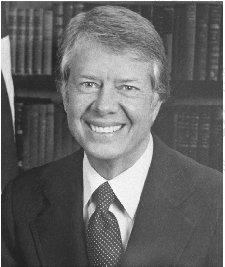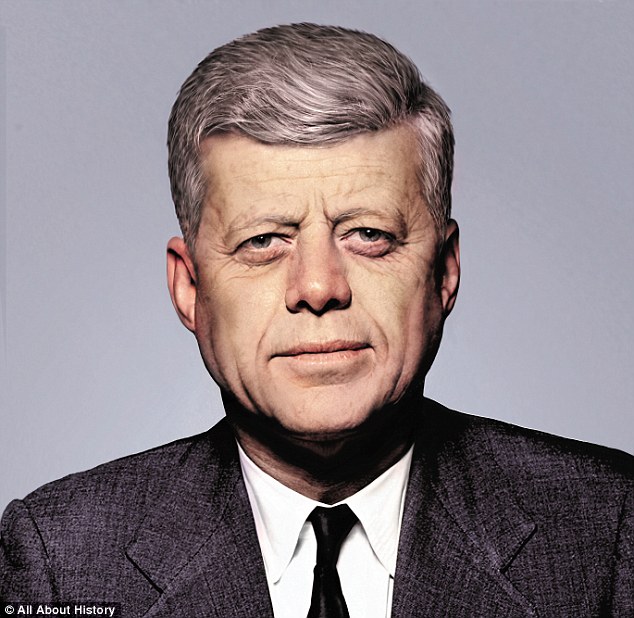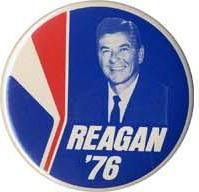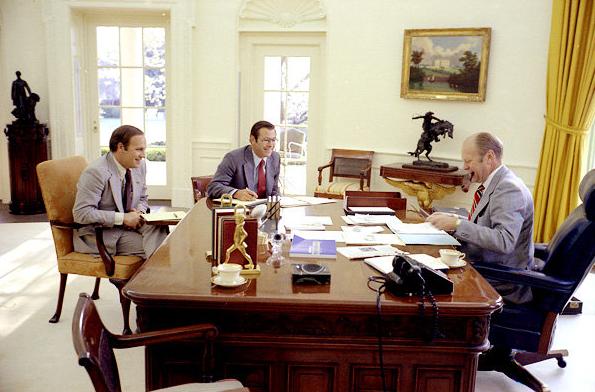Ron W. Reagan
(Republican)
1977-1985
“Why should the Republican Party nominate me to be its candidate for President? Well, uh...don’t you think I have enough experience by now?” Ron Reagan wisecracked at the ’76 convention to widespread laughter, even from his opponents. It was that self-deprecating humour that allowed that attempt to be more successful than Reagan’s three previous attempts in 1964, 1968 and 1972. After his election as Republican Senator for California in 1957 (succeeding Helen Gahagan Douglas) former actor and union organiser Reagan had rapidly been seen as a maverick in the party. Whereas Nixon had used Californian cross-filing as a means to an end and dropped the idea of cross-party appeal when it suited him, Reagan embraced the idea of being all things to all men, ‘for the many, not the few’, even if the resulting policy could be rather vague and soggy as a result. 1962 was the last time Reagan faced serious Democratic opposition as Senator. The rest of the time, like Hiram Johnson before him, he was able to obtain the nomination of the Democrats as well as the Republicans (and often third parties as well). “He
is California to a lot of them,” was the complaint of Ed Brown, the Democratic Governor of the state who was regarded as competent and down-to-earth but never as loved as Reagan.
In 1976 the presidency was effectively an open seat: certainly nobody expected the dying Kennedy to seek another term. Reagan faced fellow Senator Frank Church in the general election, and in an age of increased partisanship and fiery talk radio (in part a reaction to the media’s reluctance to cover Kennedy’s troubles), some were frustrated that the two men got along like old friends. A question was asked in one debate about the Kennedy Administration (if that term can be used) which viciously attacked the Democrats. Reagan frowned and said “I am not willing to comment on that. Age is a very serious matter and should not be used to attack an opponent.” He then turned to Church and added “I hope you agree, Senator,” wryly commenting on how Church was a decade younger. The quote, which could easily have backfired, is attributed by many to securing his victory—though California’s ever-increasing number of electoral votes couldn’t have hurt, either.
After increased confrontations with the Soviets (due to both Carter’s domestic focus, Kennedy’s dead hand and the rise of Ryzhkov) Reagan was noted for a return to detente, with the re-establishment of closer cooperation with Mitterand’s France and Callaghan’s Britain and frustrating Ryzhkov by soft power rather than hard. Much to the horror of many true believers in his party, Reagan also ran on the idea of increased social intervention into northern cities to reduce racial inequality: “President Carter achieved much for the South. I say, why stop there?”
Needless to say, in 1976 the Republican Party was determined to strangle any such ambitions in the cradle, and were able to force Reagan to accept an ‘awkward elder statesman’ VP in the same mould as the Democrats had tried with Kennedy for Carter (“though hopefully one who’s still alive this time”, as MAD magazine commented). This was none other than Barry Goldwater, bitter about a repeated series of failures to win the nomination no shorter than Reagan’s. The resulting Administration was notorious for the unpleasant, charged atmosphere in the White House, but this was little known outside the Beltway and in 1980 Reagan was able to run on his personal popularity—some called it a personality cult—to drop Goldwater in favour of a more amenable character, one who would also help him get his policies through a somewhat reluctant Congress. And that would, of course, be the same man who would succeed the Reagan presidency. Overall, few would have expected that a former actor would oversee an Administration that would leave him regarded as ‘the last real statesman’ by many, and despised as the Antichrist by others. For better or for worse, there are many who regard his (constitutionally questionable) intervention into the
Doe vs. Daniels as having tipped the balance in favour of greater abortion rights in the United States, and there are others who regard his ‘Third Bank of the United States’ (actually a social welfare programme to fund small businesses, but named in honour of his hero Alexander Hamilton) as the point at which America began to decline. Regardless, there seems to be no-one in the United States who lacks an opinion of Ron Reagan.




